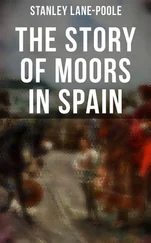Hendrik Loon - The Story of Mankind
Здесь есть возможность читать онлайн «Hendrik Loon - The Story of Mankind» весь текст электронной книги совершенно бесплатно (целиком полную версию без сокращений). В некоторых случаях можно слушать аудио, скачать через торрент в формате fb2 и присутствует краткое содержание. Год выпуска: 2000, Издательство: Electronic Text Center. University of Virginia Library., Жанр: Старинная литература, на английском языке. Описание произведения, (предисловие) а так же отзывы посетителей доступны на портале библиотеки ЛибКат.
- Название:The Story of Mankind
- Автор:
- Издательство:Electronic Text Center. University of Virginia Library.
- Жанр:
- Год:2000
- ISBN:нет данных
- Рейтинг книги:3 / 5. Голосов: 1
-
Избранное:Добавить в избранное
- Отзывы:
-
Ваша оценка:
- 60
- 1
- 2
- 3
- 4
- 5
The Story of Mankind: краткое содержание, описание и аннотация
Предлагаем к чтению аннотацию, описание, краткое содержание или предисловие (зависит от того, что написал сам автор книги «The Story of Mankind»). Если вы не нашли необходимую информацию о книге — напишите в комментариях, мы постараемся отыскать её.
The Story of Mankind — читать онлайн бесплатно полную книгу (весь текст) целиком
Ниже представлен текст книги, разбитый по страницам. Система сохранения места последней прочитанной страницы, позволяет с удобством читать онлайн бесплатно книгу «The Story of Mankind», без необходимости каждый раз заново искать на чём Вы остановились. Поставьте закладку, и сможете в любой момент перейти на страницу, на которой закончили чтение.
Интервал:
Закладка:
birds who carried the seeds far and wide until the whole earth had become covered with green pastures, or lay dark under the shadow of the big trees. But some of the fishes too had begun to leave the sea, and they had learned how to breathe with lungs as well as with gills. We call such creatures amphibious, which means that they are able to live with equal ease on the land and in the water. The first frog who crosses your path can tell you all about the pleasures of the double existence of the amphibian.
Once outside of the water, these animals gradually adapted themselves more and more to life on land. Some became reptiles (creatures who crawl like lizards) and they shared the silence of the forests with the insects. That they might move faster through the soft soil, they improved upon their legs and their size increased until the world was populated with gigantic forms (which the hand-books of biology list under the names of Ichthyosaurus and Megalosaurus and Brontosaurus) who grew to be thirty to forty feet long and who could have played with elephants as a full grown cat plays with her kittens.
Some of the members of this reptilian family began to live in the tops of the trees, which were then often more than a hundred feet high. They no longer needed their legs for the purpose of walking, but it was necessary for them to move quickly from branch to branch. And so they changed a part of their skin into a sort of parachute, which stretched between the sides of their bodies and the small toes of their fore-feet, and gradually they covered this skinny parachute with feathers and made their tails into a steering gear and flew from tree to tree and developed into true birds.
Then a strange thing happened. All the gigantic reptiles died within a short time. We do not know the reason. Perhaps it was due to a sudden change in climate. Perhaps they had grown so large that they could neither swim nor walk nor crawl, and they starved to death within sight but not within reach of the big ferns and trees. Whatever the cause, the million year old world-empire of the big reptiles was over.
The world now began to be occupied by very different creatures. They were the descendants of the reptiles but they were quite unlike these because they fed their young from the ``mammæ'' or the breasts of the mother. Wherefore modern science calls these animals ``mammals.'' They had shed the scales of the fish. They did not adopt the feathers of the bird, but they covered their bodies with hair. The mammals however developed other habits which gave their race a great advantage over the other animals. The female of the species carried the eggs of the young inside her body until they were hatched and while all other living beings, up to that time, had left their children exposed to the dangers of cold and heat, and the attacks of wild beasts, the mammals kept their young with them for a long time and sheltered them while they were still too weak to fight their enemies. In this way the young mammals were given a much better chance to survive, because they learned many things from their mothers, as you will know if you have ever watched a cat teaching her kittens to take care of themselves and how to wash their faces and how to catch mice.
But of these mammals I need not tell you much for you know them well. They surround you on all sides. They are your daily companions in the streets and in your home, and you can see your less familiar cousins behind the bars of the zoological garden.
And now we come to the parting of the ways when man suddenly leaves the endless procession of dumbly living and dying creatures and begins to use his reason to shape the destiny of his race.
One mammal in particular seemed to surpass all others in its ability to find food and shelter. It had learned to use its fore-feet for the purpose of holding its prey, and by dint of practice it had developed a hand-like claw. After innumer- able attempts it had learned how to balance the whole of the body upon the hind legs. (This is a difficult act, which every child has to learn anew although the human race has been doing it for over a million years.)
This creature, half ape and half monkey but superior to both, became the most successful hunter and could make a living in every clime. For greater safety, it usually moved about in groups. It learned how to make strange grunts to warn its young of approaching danger and after many hundreds of thousands of years it began to use these throaty noises for the purpose of talking.
This creature, though you may hardly believe it, was your first ``man-like'' ancestor.
OUR EARLIEST ANCESTORS
WE know very little about the first ``true'' men. We have never seen their pictures. In the deepest layer of clay of an ancient soil we have sometimes found pieces of their bones. These lay buried amidst the broken skeletons of other animals that have long since disappeared from the face of the earth. Anthropologists (learned scientists who devote their lives to the study of man as a member of the animal kingdom) have taken these bones and they have been able to reconstruct our earliest ancestors with a fair degree of accuracy.
The great-great-grandfather of the human race was a very ugly and unattractive mammal. He was quite small, much smaller than the people of today. The heat of the sun and the biting wind of the cold winter had coloured his skin a dark brown. His head and most of his body, his arms and legs too, were covered with long, coarse hair. He had very thin but strong fingers which made his hands look like those of a monkey. His forehead was low and his jaw was like the jaw of a wild animal which uses its teeth both as fork and knife. He wore no clothes. He had seen no fire except the flames of the rumbling volcanoes which filled the earth with their smoke and their lava.
He lived in the damp blackness of vast forests, as the pygmies of Africa do to this very day. When he felt the pangs of hunger he ate raw leaves and the roots of plants or he took the eggs away from an angry bird and fed them to his own young. Once in a while, after a long and patient chase, he would catch a sparrow or a small wild dog or perhaps a rabbit. These he would eat raw for he had never discovered that food tasted better when it was cooked.
During the hours of day, this primitive human being prowled about looking for things to eat.
When night descended upon the earth, he hid his wife and his children in a hollow tree or behind some heavy boulders, for he was surrounded on all sides by ferocious animals and when it was dark these animals began to prowl about, looking for something to eat for their mates and their own young, and they liked the taste of human beings. It was a world where you must either eat or be eaten, and life was very unhappy because it was full of fear and misery.
In summer, man was exposed to the scorching rays of the sun, and during the winter his children would freeze to death in his arms. When such a creature hurt itself, (and hunting animals are forever breaking their bones or spraining their ankles) he had no one to take care of him and he must die a horrible death.
Like many of the animals who fill the Zoo with their strange noises, early man liked to jabber. That is to say, he endlessly repeated the same unintelligible gibberish because it pleased him to hear the sound of his voice. In due time he learned that he could use this guttural noise to warn his fellow beings whenever danger threatened and he gave certain little shrieks which came to mean ``there is a tiger!'' or ``here come five elephants.'' Then the others grunted something back at him and their growl meant, ``I see them,'' or ``let us run away and hide.'' And this was probably the origin of all language.
But, as I have said before, of these beginnings we know so very little. Early man had no tools and he built himself no houses. He lived and died and left no trace of his existence except a few collar-bones and a few pieces of his skull. These tell us that many thousands of years ago the world was inhabited by certain mammals who were quite different from all the other animals--who had probably developed from another unknown ape-like animal which had learned to walk on its hind-legs and use its fore-paws as hands--and who were most probably connected with the creatures who happen to be our own immediate ancestors.
Читать дальшеИнтервал:
Закладка:
Похожие книги на «The Story of Mankind»
Представляем Вашему вниманию похожие книги на «The Story of Mankind» списком для выбора. Мы отобрали схожую по названию и смыслу литературу в надежде предоставить читателям больше вариантов отыскать новые, интересные, ещё непрочитанные произведения.
Обсуждение, отзывы о книге «The Story of Mankind» и просто собственные мнения читателей. Оставьте ваши комментарии, напишите, что Вы думаете о произведении, его смысле или главных героях. Укажите что конкретно понравилось, а что нет, и почему Вы так считаете.












